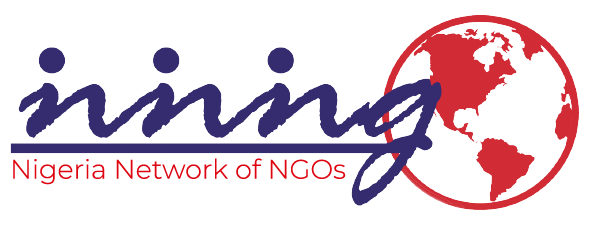Background
The Nigeria Network of NGOs (NNNGO) is the first generic membership body for civil society organisations in Nigeria that facilitates effective advocacy on issues of poverty and other developmental issues. Through its civil society reforms and strengthening programme, it has constructively engaged regulators and the National Assembly on laws guiding the operations of civil society organisations to improve the operational environment for nonprofits including improving the sector’s transparency and accountability.
With the support of Google.org, the Network is currently embarking on a project to build the capacity of nonprofits in Nigeria. It is aimed at addressing the findings (capacity gaps) identified in the Nonprofit Assessment research undertaken by the Nigeria Network of NGOs including the building of digital skills by nonprofit board, executive directors and staff.
NNNGO is therefore soliciting interest from experienced facilitators in the nonprofit sector (preferably Executive Directors), to work with the Network in training nonprofit board, Executive Directors and staff, in her events.
Scope of Work
The facilitator will work with NNNGO team to carry train nonprofits on three key events viz- Executive Director’s hangout, nonprofit management training and a board conference.
Specifically, the key areas for the events are:
i. Executive Directors hangout: interested facilitators should have experience in Leading nonprofit, Organisational concerns (such as staffing issues, board management, organisational management, time management, planning and strategy, fundraising and succession planning).
ii. Nonprofit management training: the facilitator should have broad insights on key current management issues for nonprofit organisations. Strategic planning, work planning, budgeting, communications, nonprofit friendly digital tools, skills and apps, reporting-narrative and financial management.
iii. Board conference: practical tips will be provided on nonprofit governance- board job description, terms of reference and ways of working, board governance codes and standards, understanding nonprofit audits and measuring the executive director’s performance.
Output and Deliverables
The facilitator will work with the NNNGO team in producing the following key deliverables:
i. A power point presentation and tools on related topic
ii. Delivery of training based on the power point presentations.
iii. A report on the event
iv. Analysis of an end of event evaluation survey
Duration and Time Schedule
The facilitator can only work in one location of an event, and it is expected to indicate an area of interest that can be handled properly. The events will take place from March through July.
Location and Dates for the events
i. Executive Director’s Hangout
• Lagos: March 17, 2021
• Kano: April 14, 2021
• Benin: April 20, 2021
ii. Nonprofit Management Training
• Port-Harcourt: May 3 – 7, 2021
• Abuja: May 23 – 27, 2021
• Ibadan: June 14 – 16, 2021
iii. Nonprofit Board Conference
• Lagos: July 15, 2021
Reporting
The facilitator shall report through the Project Officer to the Executive Director on the assignment and on all other logistics until the deliverables are submitted as required.
Qualification
The facilitator should have vast knowledge and experience in the nonprofit sector, preferably an executive director or top civil society personnel with experience on:
i. Leading a nonprofit
ii. Governance strategy and structure
iii. Human resource, personnel and management
iv. Project management, monitoring and evaluation
v. Funding and organizational sustainability
vi. Use of technology
Application Process
Interested individuals should complete this form and upload a copy of their Curriculum Vitae by March 12, 2021.
For further clarification, you may contact:
Chidinma Okpara at: chidinma.okpara@nnngo.org
To Apply, click on the link below
https://docs.google.com/forms/d/e/1FAIpQLSfLIw9z0hAg5s_rnPWgaSseUtcKzmo17ZZv-YvRhPu7I1MgeA/viewform




